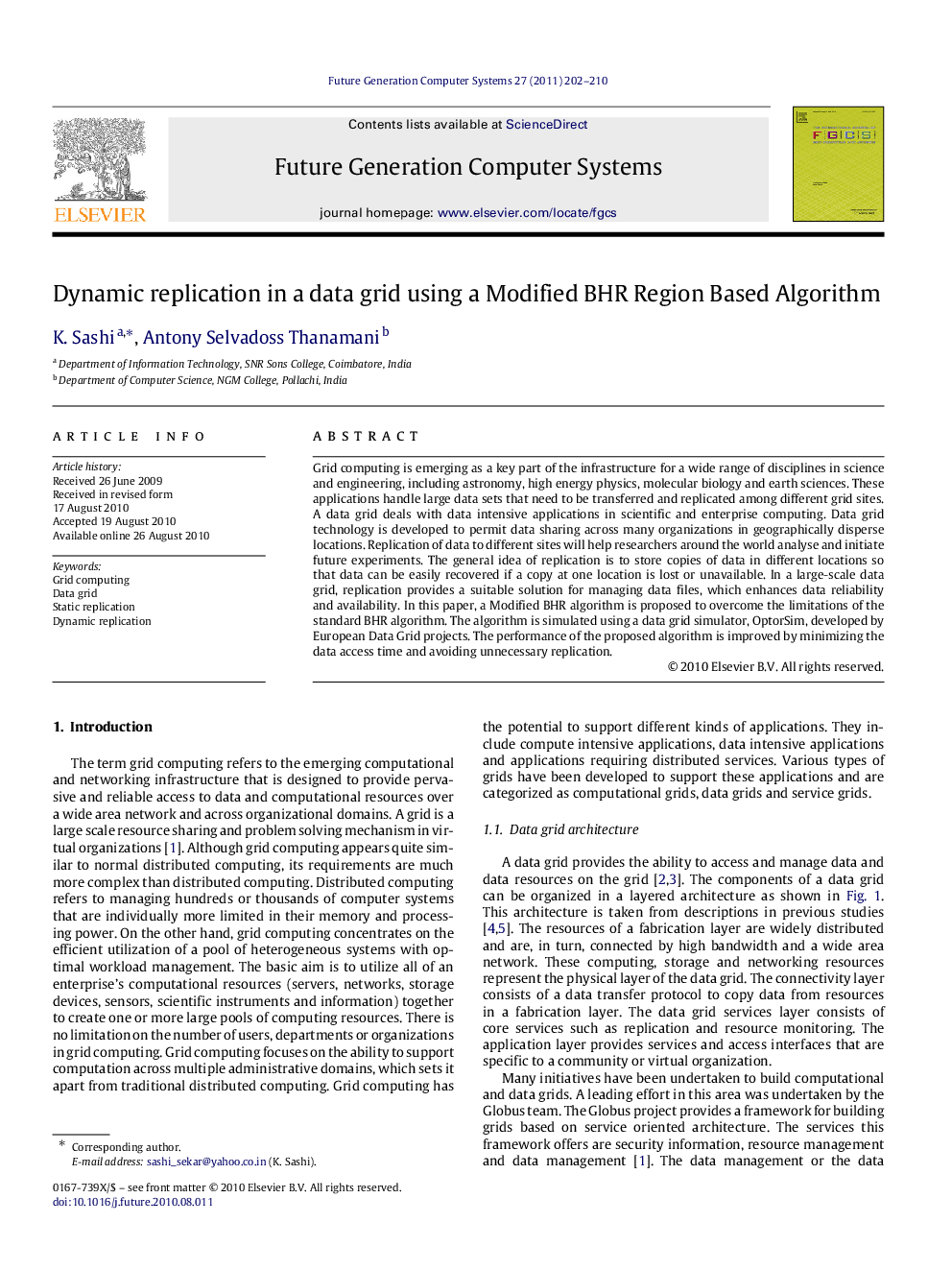| Article ID | Journal | Published Year | Pages | File Type |
|---|---|---|---|---|
| 425322 | Future Generation Computer Systems | 2011 | 9 Pages |
Grid computing is emerging as a key part of the infrastructure for a wide range of disciplines in science and engineering, including astronomy, high energy physics, molecular biology and earth sciences. These applications handle large data sets that need to be transferred and replicated among different grid sites. A data grid deals with data intensive applications in scientific and enterprise computing. Data grid technology is developed to permit data sharing across many organizations in geographically disperse locations. Replication of data to different sites will help researchers around the world analyse and initiate future experiments. The general idea of replication is to store copies of data in different locations so that data can be easily recovered if a copy at one location is lost or unavailable. In a large-scale data grid, replication provides a suitable solution for managing data files, which enhances data reliability and availability. In this paper, a Modified BHR algorithm is proposed to overcome the limitations of the standard BHR algorithm. The algorithm is simulated using a data grid simulator, OptorSim, developed by European Data Grid projects. The performance of the proposed algorithm is improved by minimizing the data access time and avoiding unnecessary replication.
Research highlights► Deals with replication for data grid. ► Minimizes Mean Job Execution time. ► Minimizes the average storage used.
